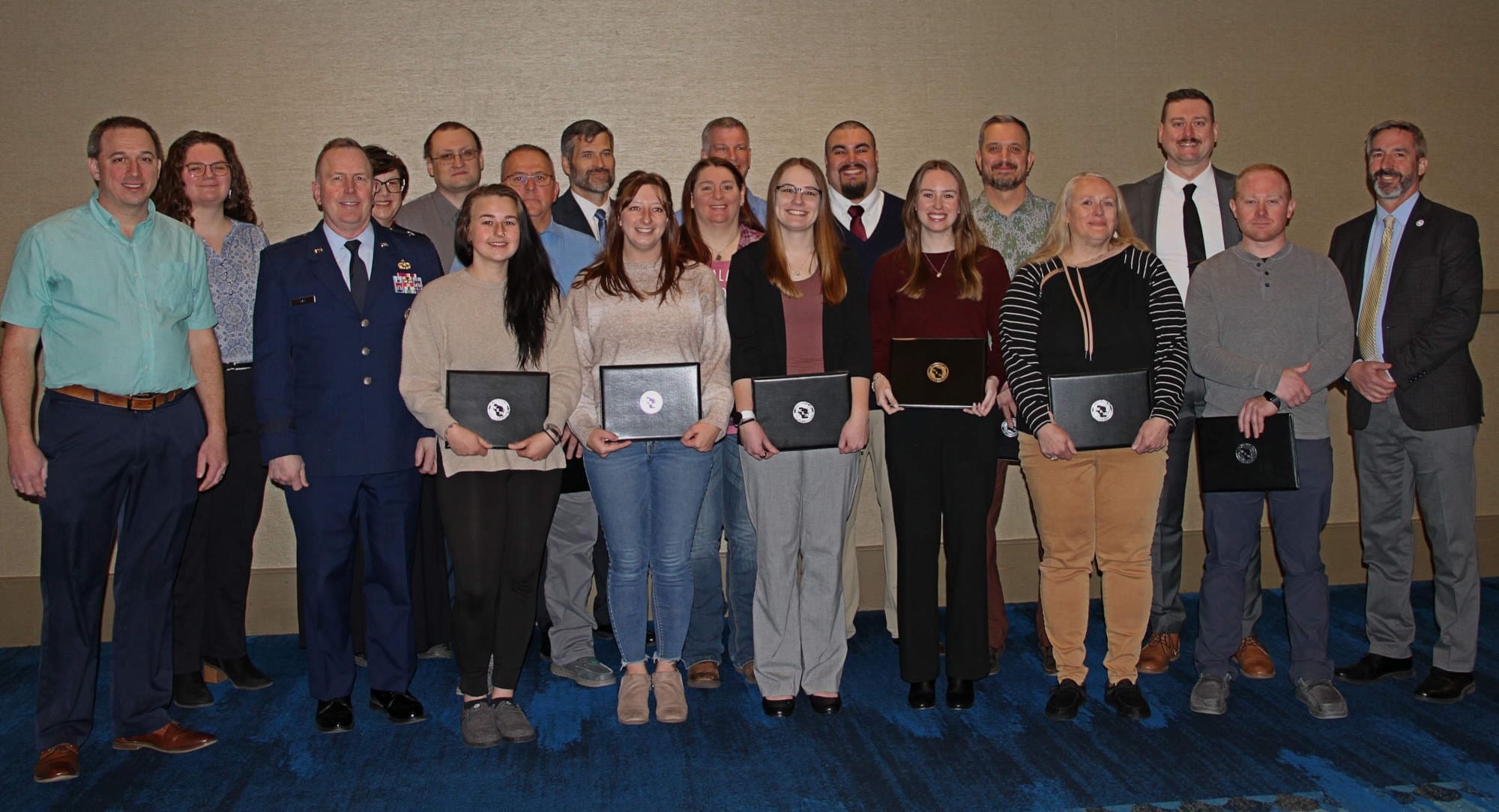Certified Emergency Manager
Wisconsin Emergency Management (WEM), in cooperation with the Wisconsin Emergency Management Association (WEMA), administers the Wisconsin Certified Emergency Manager (WCEM) program. This program recognizes the individual efforts of dedicated Wisconsin responders, emergency managers and interested persons – both professional and volunteer – as they expand their knowledge and experience to ready themselves to respond to any type of emergency or disaster affecting their municipality, state, tribe or nation. The WCEM program fosters a continued culture of excellence among Wisconsin’s emergency management professionals.
The program is divided into three ranks, Basic, Professional, and Advanced Professional. Each level corresponds to an increasing level of complexity and commitment. The WCEM program is open to anyone and is not based on profession or educational degree. Aside from the listed prerequisites found in the guiding documents on this page, the only requirement is any interested candidate participates in a position related to emergency management. This includes the five national frameworks/mission areas: Prevention, Protection, Mitigation, Response and Recovery.
Candidates who successfully complete any WCEM level will receive a certificate signed by the Governor of the State of Wisconsin, the WEM Administrator and the President of WEMA. This certificate is presented at the annual Wisconsin Governor’s Conference on Emergency Management and Homeland Security.

WCEM – Basic
The Basic level is the introductory level. Prerequisites are based entirely upon completing a set course of training, the majority of which are FEMA Independent Study courses that can be completed at the candidate’s own pace. A handful of the prerequisite courses are in-person classes that WEM typically holds once or twice per year. These classes can be completed in any order (though each may have their own prerequisites that a potential student must complete prior to attendance), but a candidate must attend and complete each course (including any testing requirements) to receive credit. All such classes are free to attend, but the candidate (or their agency) is responsible for transportation, lodging and meal costs. Finally, a WCEM – Basic candidate must pass a written knowledge test of State Statute 323 to complete requirements for this level. A new candidate can reasonably expect to complete the WCEM – Basic level in one to three years.
WCEM – Professional
The Professional level represents the next stage of expertise. Like the WCEM – Basic level, the prerequisites are based on a mix of FEMA Independent Study classes and in-person training classes, though leaning more heavily upon the in-person training. Additionally, professional-level candidates are expected to seek out an experienced mentor, who will aid them in understanding the wide base of knowledge a WCEM – Professional level candidate is expected to have awareness of. After completing all of the prerequisite training, candidates must pass a knowledge test covering multiple state statues, administrative rules and emergency management-related policies. A study guide is available to assist candidates in preparing for this test. A new candidate can reasonably expect to complete the WCEM – Professional level in three to five years.
WCEM – Advanced Professional
The Advanced Professional level is the ultimate level of recognition within the state and, unlike the other two levels, is meant to recognize dedicated career professionals serving in the emergency management field – those who have spent ten or more years full-time in the profession (or an equivalent number of hours in a part-time or volunteer position). While there is an expanded training prerequisite, there is no longer a directed list of classes. Instead, completion is based on total academic hours to allow for the wide variation of specialty training someone at this level will have accumulated during their career. WCEM – Advanced Professional candidates are also expected to have actively mentored less experienced emergency managers and to present a major project for review by their peers.
WCEM Guiding Documents
For Certified Emergency Manager
For WCEM – Basic
For WCEM – Adv Professional
2024
Basic CEM
- Alexandria A. Berkhahn
- Brenda L. Beyer
- Brian R. Bieniek
- Kelly N. Bremer
- James W. Case
- Elizabeth Dahl
- Reed G. Erickson
- Brad R. Jorgenson
- Cody J. Layer
- Michael B. Mackesey
- John McHugh
- Jade Merrill
- Adrian G. Meyer
- Tracy Lynn Neuhauser
- Amanda Pulvermacher
- Bonnie C. Skalecke
- Catherine Sowinski
- Lucas Teska
- Tyler J. Verhasselt
2023
Basic CEM
- Chad Atkinson
- Jeremy A. Bonikowske
- Haily Dudzinski
- Rhonda A. Green
- Robert L. King
- Robert Koch
- Edward Lawson
- Christine M. McPherson
- Stephanie K. Montgomery
- Jack Workman
Professional CEM
- Stephanie A. Cooksey
- Grant Deal
- Valerie Desio
- Tyler Esh
- Eric Franco
- Amanda E. Meudt-Gardner
- Darin Gudgeon
- Amy Houle
- Alexander Johnston
- Troy Klemstein
- Allen J. Luchini
- Lisa A. McMahon
- Christoffer M. Trossen
- Cassidy Walsh
- Michelle A. Ward
- James W. Williams
2022
Basic CEM
- Kayla Beckerdite
- Renee Scovill
- Samuel Simmons
- Cassidy Walsh
Professional CEM
- Ruhamah Bauman
- Brian Cockerham
- Sherri Congleton
- Armando Farias
- Brent Krebs
- Chrissi Lowery
- Lauri Maki
- Dennis “Sam” Martin
- Jason Rowland
- Lorenzo Santos
2021
Basic CEM
- Jamie Aulik
- Aaron Williams
Professional CEM
- Sarah Christensen
- Alexander Freeman
- Bryan Gadow
- Tracy Hameau
- Robert Kaslick
- James Kerner
- Robert Kunze
- Brandon Larson
- John Stuhlmacher
- Kari Tomlin
2020
- Professional CEM
- Erik Engel
- Michael Lackey
- Brian Satula
- Timothy Slater
2019
Basic CEM
- Rebecca Jackson
- Robert Kaslick
- Joshua Kowalke
- Michael Olen
- William Tyler
- James Williams
Professional CEM
- September Murphy
- Brian O’Heron
- Eric Rasmussen
- Bob Weinert
2018
Original CEM
- Tom Hall
- David Melby
- Sean Rausch
- Phillip Rentmeester
- Patricia Sanchez
Basic CEM
- Amanda Fox
- Ryan Skabroud
- Travis Waak
Professional CEM
- Natasha Cardinal
- Melissa Hackl
- Mollie Ostrander
- Kristina Page
- Darlene Pintarro
- Paul Riegel
- Robert Schmid
2017
- Mara Alberts
- Gail Goodchild
- Chris Gulbrand
- Jeffrey Kraft
- Robert Krueger
- Joseph Meagher
- Maria Nelson
- Todd Neumann
- Matthew Riedell
- Dave Sletten
- Nate Van Da Huvel
2016
- Ramona Baldoni-Lake
- Nick Banuelos
- Gary Bell
- Kraig Biefeld
- Michael Brady
- Theresa Burgess
- Erica Dawson
- Christopher Hoch
- Darren Jorgenson
- Michael Judy
- Beth Kline
- Shena Kohler
- Keith Krueger
- David Melancon
- Patricia Miller
- Stacy Ofstad
- Robert Swenarski
- Chris St.Pierre
- Gary Wieczorek
- Scott Ziegler
2015
- Kirk Bowen
- Carol Buck
- Jim Burns
- Matthew Dykstra
- Paul Felician
- Adam Gregare
- Kaylynn Gresham
- Douglas Johnson
- Gerald Jones
- David Larson
- Joel McDearmon
- John McLellan, Jr.
- Corina Neeb
- Susan Nygren
- Lisa Olson-McDonald
- Patrick Patterson
- Victoria Wiese
2014
- Shelley Brown-Giebel
- Eugene Essex
- Lewis Evans
- Steve Fenske
- Quentin Graham
- Richard Haider
- Michelle Hartness
- Donna Haugom
- Keith Hurlbert
- Carrie Meier
- Susan Meilahn
- Rebecca Slater
- Mark Waters
- Tony Zelhofer
2013
- Randy Books
- Kurt Drezek
- GingerLee Hooley
- David Nunley
- Sherry Olszewski
- Jessica Rodriguez
- Spencer Vassel
2012
- David Bursack
- Kathy Hehn
- James Ley
- Paul Logan
- Chris Meyer
- Christine Muller
- Don Neuert
- Tracy Nollenberg
- Nathaniel Weier
2011
- Pat Adams
- Keith Butler
- Dan Dahlke
- Tom Grahek
- John Scott Garard
- Craig Hedgley
- Deonna Johnson
- Mattewa Marmor
- Gary Morimoto
- Rebecca Powers
- Cathy Rigdon
- Jennifer Shevey
- Kevin Wernet
- Adam Wojciehowski
2010
- John Hanson
- Roxanne Kahan
- Tom Mattioli
- Craig Reuter
2009
- Steve Haskell
- Peter Jensen
- Amy Nehls
- Jack Morrison
- E. Kevin O’Neill
- Scott Schulius
- Jeff Wydeven
2008
- Linda Coogan
- Jane Grabarski
- Cheryl McCrary
- Trina Rabida
- Steven Steinhardt
- Cindy Struve
2007
- Michael Ciardo
- Kathy Johnson
- Julie Loffelholz
- Scott Pavelchik
- Dawn Robinson
- Kathy Schwei
2006
- Tammy Bechel
- Ann DeMuse
- Paul France
- Mark Fritsche
- James Galloway
- Jim Hanson
- Lori Hucek
- Ken Kortenhof
- Shannon Ladwig
- Tanna McKeon
- Cullen Peltier
- Jennifer Warnbe
- Dan Wenborne
2005
- Linda Kollman
- Kevin Williams
2004
- Bob Host
- Hugh Martin
- Larry Reed
- Rhonda Reynolds
- Alan Shanks
2003
- Genene Hibber
- Ben Schliesman
2002
- Rollin Church
- Loleta Sherman
- Paul Wolfe
2001
- Todd Nehls
- Mark Owen
- JoAnn Wipperfurth
- Jim Zernicke
2000
- Nancy Crowley
- Bill Stolte
1999
- Shirley Connors
- David Maack
- Mary Oja
- Dick Polaski
1998
- Jim Arrin
- Ken Bowman
- Jerry Haberl
- Kathy Krusiec
- Jim Malueg
- Roland Sacho
- John Stoncey
- Geri Wasielewski
- Marie Wilcox
1997
- Jack Burbank
- Kim Ketterhagen
- John Olson
- Jim Pamparin
- Lois Ristow

